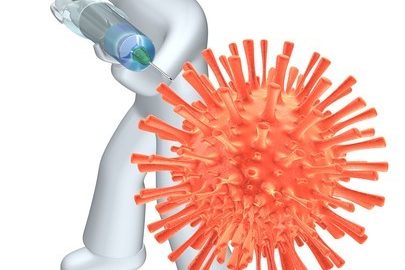Over 26,000 cancer scientists and clinicians attended the American Society of Clinical Oncology (ASCO) annual meeting in Chicago last week. At this critical international meeting the latest research findings are presented and because ASCO is the world’s dominant oncology specialty group, the discussions and recommendations set the standard for cancer care. Thousands of studies, small and large were reviewed, so here we will just brush the surface.
The increasing financial ramifications of the federal sequestration on access to cancer therapy were a major topic of concern. According to presenters, the loss in reimbursement is having a growing affect on the ability to pay for therapy and to continue vital research. In addition, a survey found that 83% of oncologists saw drug shortages in recent months and 94% reported that shortages were affecting patients. It is expected that these problems will get worse. Presenters urged Congress to quickly address these potentially fatal issues.
Paradoxically, a remarkable presentation, which received enthusiastic applause, was a very low cost technique to screen for cervical cancer. In India the dollars, technology and expertise to perform routine PAP smears is not available. Therefore, researchers used acetic acid (vinegar), which is swabbed on the cervix during a pelvic exam. If a precancer or cancer is present, the surface turns white. The vinegar method reduced cervical cancer deaths by 31%, saving tens of thousands of lives.
Following the theme of saving dollars, several studies looked at the need for routine monitoring of cancer survivors. While many guidelines recommend regular surveillance, research often shows limited benefit of repeated scans, labs or even exams. For many cancers, the earliest sign of cancer recurrence is the patient’s symptoms. For example, most breast cancer patients do not require any x-rays or even tumor marker tests to be followed safely. ASCO presenters reviewed data indicating that excess testing increased the risk from radiation exposure, increased false positive results which can lead to unneeded extra testing and can cause severe anxiety about test results, which has a profound affect on patient’s lives.
There were a significant number of new therapies for cancer treatment. It is important to note that most are not classic chemotherapy agents, that is they are not toxins, but rather are biologics. These drugs change or block the natural physiology, genetics or microanatomy of cancer. This represents a major change from even just a few years ago, when the whole focus was on poisoning the malignant cells. Now we try to find each cancer cell’s particular biologic weakness.
Thyroid cancer is a slow growing, but common malignancy, which is resistant to most therapy. Therefore, data that a pill, Sorafenib (Nexavar), can treat this disease generated enough excitement that it was announced at a plenary session. The results of the DECISION Trial showed that in patients with metastatic thyroid cancer, Sorafenib stopped cancer growth for almost a year. This is a stunning result, considering the lack of treatment options for this disease and opens the way for new therapy and research.
Monoclonal antibodies are proteins manufactured artificially which can alert a patient’s immune system that there is a target to attack. Anticancer antibodies are increasingly used in oncology. Treatment of Stage IV melanoma with the investigational antibody Nivolumab, was presented at ASCO. With few side effects, Nivolumab killed melanoma three to six times better than other therapies, so that 30% of patients with that cancer had reduction in tumor masses. Another biologic agent against melanoma was presented in a study that added a bone marrow stimulating agent (GM-CSF) to a recently created anti-melanoma drug (Ipilimumab, also an antibody). The combination extended the survival of patients with stage IV melanoma
Anti-angiogenesis agents continue to score breakthroughs against cancer. These drugs destroy microscopic blood vessels, which feed the disease. The dominant drug of this type continues to be Bevacizumab (Avastin). In two studies, it demonstrated activity against two very different cancers. In the first, Bevacizumab added to chemotherapy improved length of survival in women with advanced cervical cancer. In the second study, the combination of Bevacizumab, radiation and an oral chemo agent, Temozolomide (Temodar), slowed disease progression in very aggressive brain cancer (glioblastoma). Both of these findings will likely change standard of care.
Another drug, with similar anti-blood vessel effects, Pazopanib, was given to women after they had received initial surgery and chemotherapy for advanced ovarian cancer. It was tested as a maintenance therapy to delay or prevent the cancer’s return. This oral medication, sold as Votrient, succeeded in delaying relapse, compared to a placebo. Oral medicines of this type, which are called tyrosine kinase inhibitors, block growth stimulating substances, as well as stopping angiogenesis.
About 80% of breast cancer is “estrogen receptor positive,” meaning that estrogen made by a woman’s body stimulates the cancer’s growth. Like fertilizer, estrogen does not start the cancer, but helps it grow. For this reason, premenopausal women with early breast cancer, after initial treatment with surgery, radiation and/or chemotherapy, are usually placed on tamoxifen for five years. Now several large studies, the aTTom and ATLAS trials, have shown that fewer recurrences of breast cancer occur if the tamoxifen is continued for 10 years. While there is still some debate regarding this issue, because of potential long-term side effects, it is likely that in the future oncologists will recommend a decade of therapy.
In the spirit that the best way to fight cancer is never get it in the first place, the Cooper Center Longitudinal Study was revealed. This 20-year study of 17,049 men with an average age of 50 years, showed that men who maintained increased levels of cardiovascular fitness had lower risk of developing colon or lung cancer. The researchers were able to focus on fitness (measured yearly by a treadmill test), even if a man smoked, drank or was overweight. Fit men had a 68% lower risk for lung cancer and a 38% lower risk for colon cancer. If a fit man does get colon, lung or prostate cancer, he is more likely to survive.
Finally, there is increasing excitement with the area of “Personalized Medicine.” This is the concept that by understanding a patient’s genes, we can better predict cancer, prevent cancer, attack cancer and by matching treatment to patient, reduce side effects. For example, a study was presented that genetic changes in breast cancer can predict whether the drug Everolimus will work. Research on the Veristat test, which analyses serum proteins to see if the mutation-targeting drug Erlotinib will work, was presented. Advanced New Generation DNA sequencing techniques (NGS) were discussed, which will likely make it possible to identify gene targets for personalized treatment. As every person who attended ASCO knows, cancer is a disease of mutated growth genes and the future, the cure, will come from the science of genetics.
In the last 12 months, over 40,000 articles on cancer research and therapy were published. Despite cuts in cancer research (deeper in the United States than any other major Country), we continue in the war to defeat this disease. Step-by-step we move forward, toward a tomorrow when the dread disease will be no more.






16 Comments